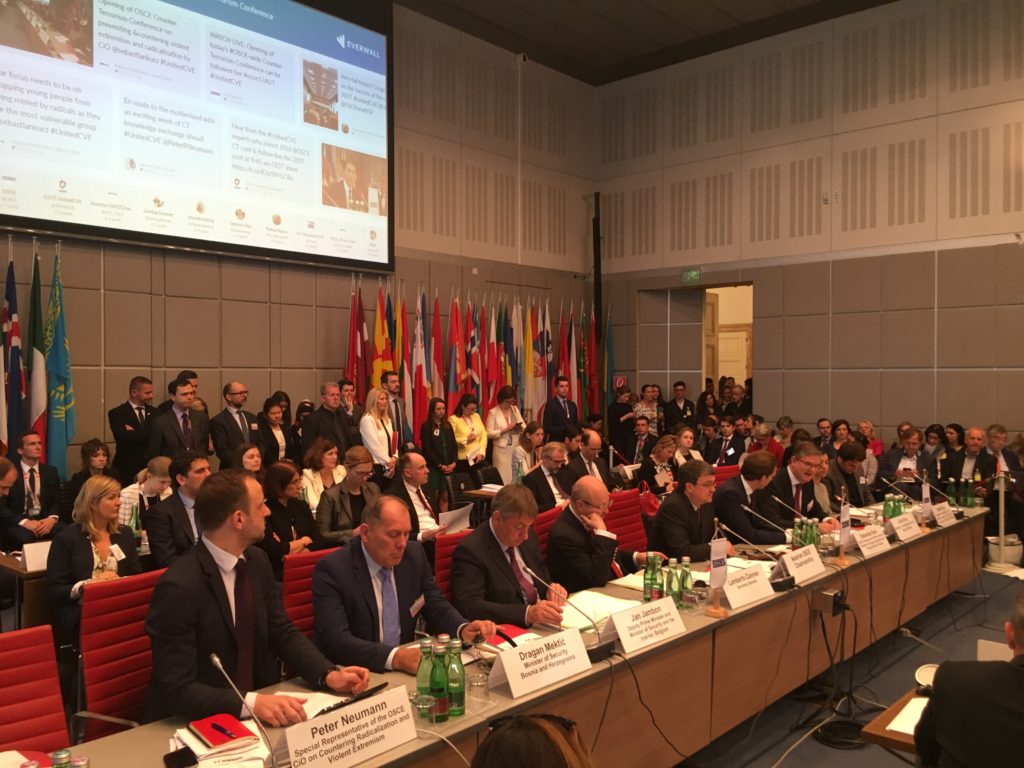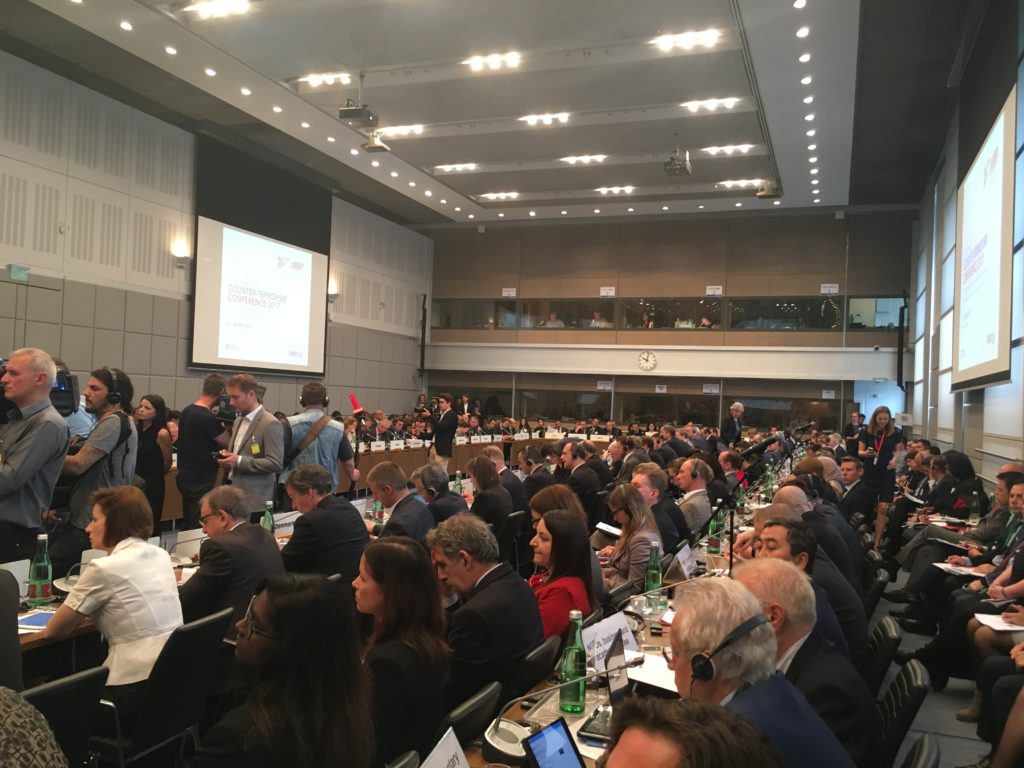ICT4Peace Foundation introduces the UN CTED-ICT4Peace Tech Against Terrorism Project at 2017 OSCE-wide Counter-Terrorism Conference
On 23-24 May 2017 David Cliff and Daniel Stauffacher of ICT4Peace were invited to participate in the 2017 OSCE-wide Counter-Terrorism Conference on “Preventing and Countering Violent Extremism and Radicalization that Lead to Terrorism”. Hundreds of representatives of governments, civil society, and academia attended the Hofburg Palace in the heart of the Austrian capital.
David Cliff spoke on the first day and introduced the UN CTED-ICT4Peace – Tech Against Terrorism project (www.techagainstterrorism.org), explaining to the hall that there are currently three main strands of the newly created project underway:
- In 2017 UN CTED and ICT4Peace are organising workshops especially for tech startup companies in London in partnership with Facebook, Google, Twitter, Microsoft and others and plan to extend this work beyond the UK in due course including other locations in the Middle East, Europe, Asia, Africa, and the Americas, to address the issue of preventing the use of ICTs for terrorist purposes;
- The project will also facilitate the provision of operational support to technology startups on both the technical and legal aspects (e.g. making available templates of terms of services and community guidelines) of the issue;
- A collection of practical online tools that new and emerging businesses can draw on to help them proactively and reactively address the terrorism and extremism problem will be evaluated..
David Cliff noted that the Tech Against Terrorism project (techagainstterrorism.org) is designed to promote “industry-led self-regulation driven by the desire to build trust between the public and private sector” and help forge a “cooperative public-private environment” in which the effectiveness of online counter-terrorism methods can be improved, while human rights and fundamental freedoms are upheld.
His statement can be found here.
The project was recently referred to in UN Security Council document S/2017/375 on the “Comprehensive international framework to counter terrorist narratives”, in the context of public-private partnerships.
The need for a holistic approach involving cooperation among the full range of affected actors emerged as a recurrent theme of the conference, particularly the need for closer collaboration between law enforcement and representatives of local communities. One of the meeting’s other recurring themes was the need for better information-sharing – as one speaker put it dealing with the challenge of a “tsunami of data”. Counter-terrorism and combatting organised crime may have overlaps, for instance, that are missed if those working on each don’t talk to one another.
The conference heard discussed how to approach encrypted technologies in a way that strikes the right balance between security and privacy. In a side-event on protecting freedom of expression when countering online radicalisation and extremism, attendees heard civil society and industry speakers discuss the value of transparency as well as the need for an airtight content takedown process and collaboration, such as is in evidence presently with the Facebook-Google-Twitter-Microsoft “hash-sharing database” established late in 2016.


